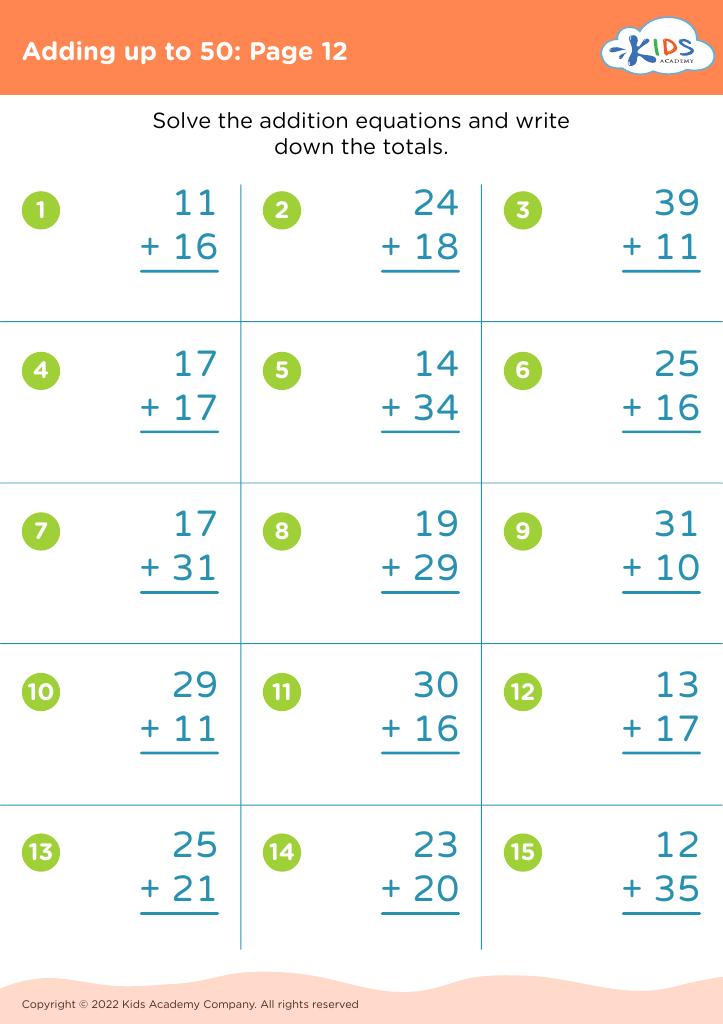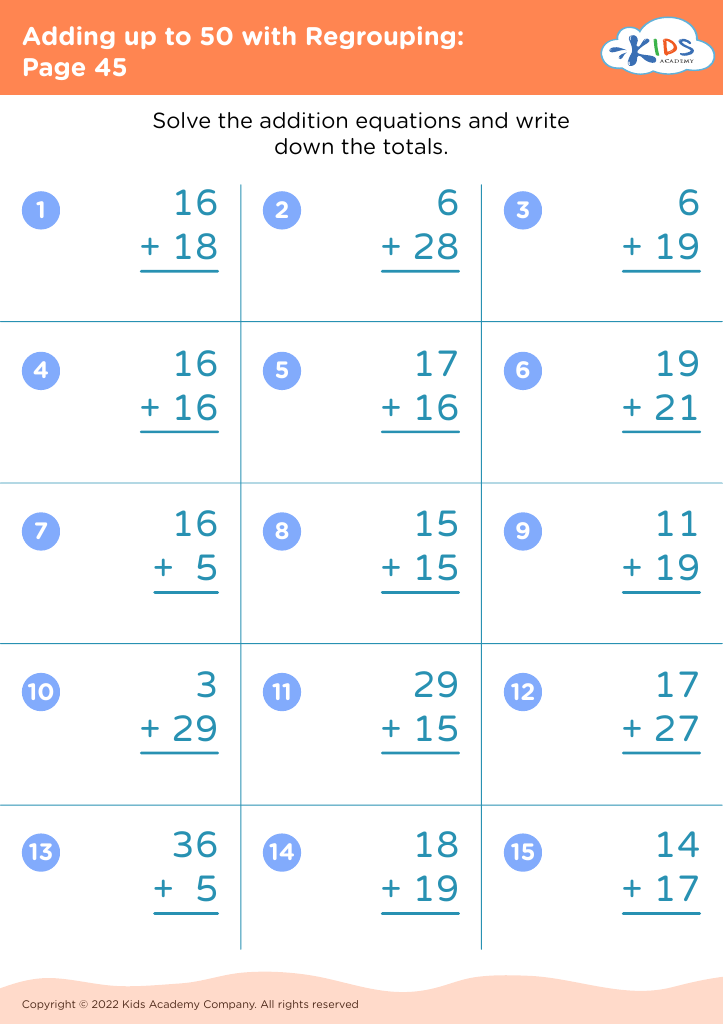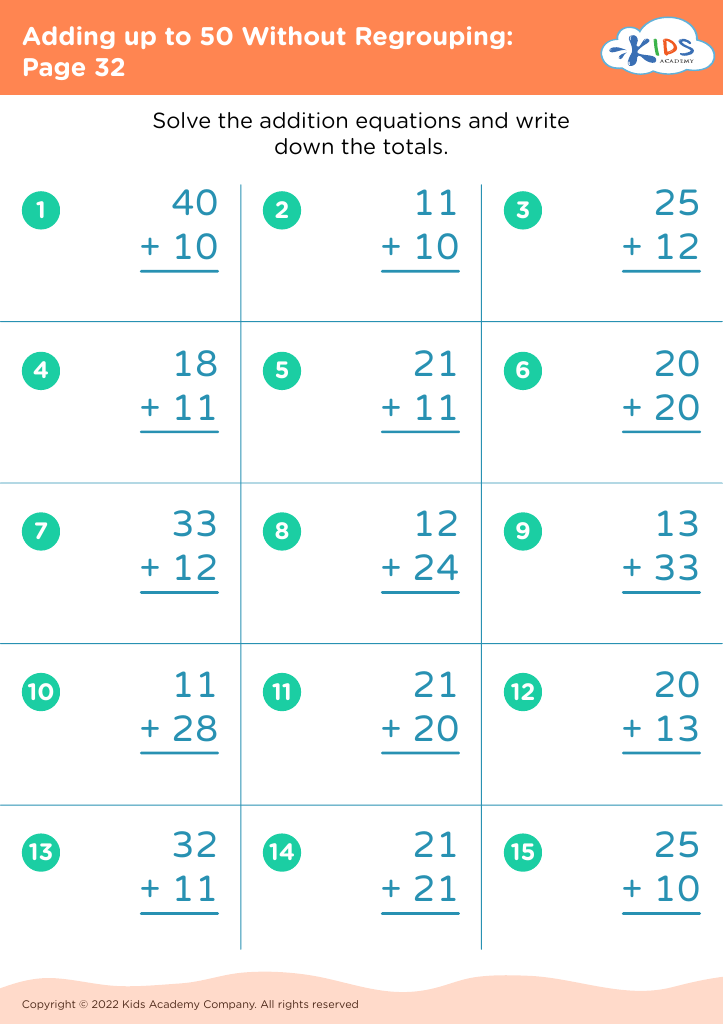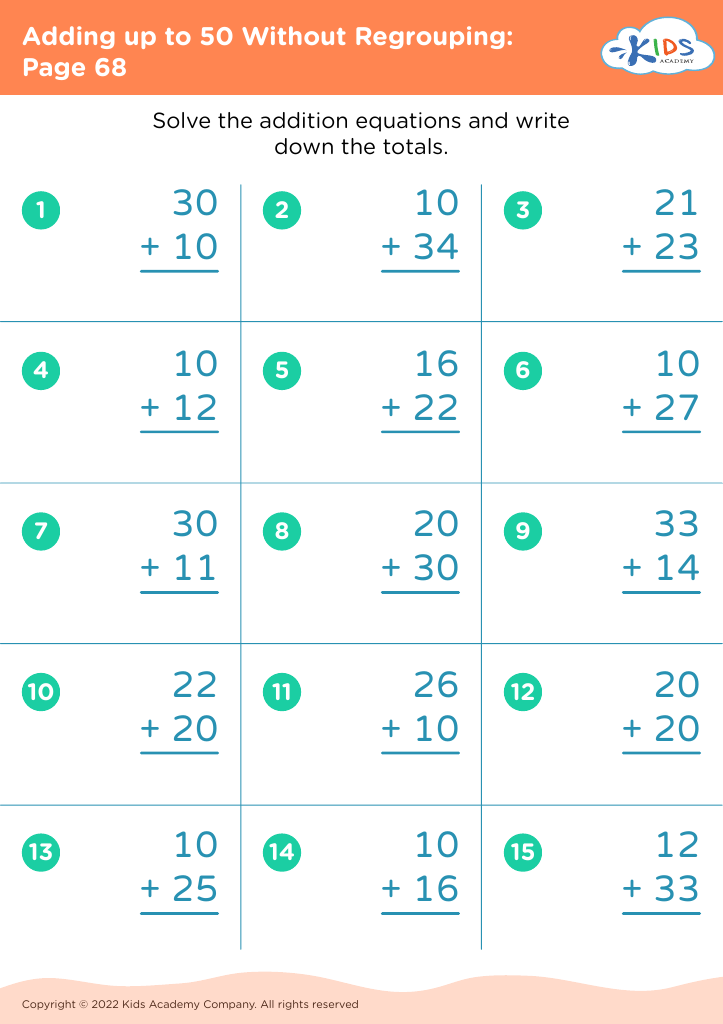Basic Addition Skills Adding up to 50 Worksheets for Ages 3-8
5 filtered results
-
From - To
Boost elementary math skills with our Basic Addition Skills worksheets for ages 3-8! Suitable for young learners, these engaging worksheets introduce children to addition problems adding up to 50, fostering confidence and number sense. Each worksheet is thoughtfully designed to balance fun and learning with colorful visuals and age-appropriate challenges. Whether used at home or in the classroom, these resources help kids grasp the fundamentals of addition, improve counting skills, and build a strong foundation for future math success. Support your child's academic journey with activities that make math practice enjoyable and effective!
Basic addition skills for children aged 3-8 serve as the foundation for their future math learning and overall cognitive development. During these formative years, understanding how to add numbers up to 50 equips young learners with essential mathematical concepts like numerical progression, place value, and arithmetic fundamentals. For parents and teachers, fostering these skills early on can greatly influence a child's academic confidence and enthusiasm.
Engagement in basic addition enhances problem-solving abilities, critical thinking, and logical reasoning. Moreover, learning to add numbers up to 50 encourages children to recognize patterns and relationships among numbers, making more complex calculations easier to comprehend in the future. By mastering these early math skills, students are better prepared for more advanced topics, ensuring a smoother educational journey.
Furthermore, early proficiency in math can lead to improved performance in other subjects and better overall academic outcomes. For parents and teachers, emphasizing the importance of basic addition and providing supportive, interactive environments helps children develop a positive relationship with math. This learning lays a crucial foundation, bolstering their confidence, academic resilience, and curiosity—key traits that contribute to lifelong learning and success. Investing time and resources into these skills ultimately benefits individual growth and broader educational progress.





















